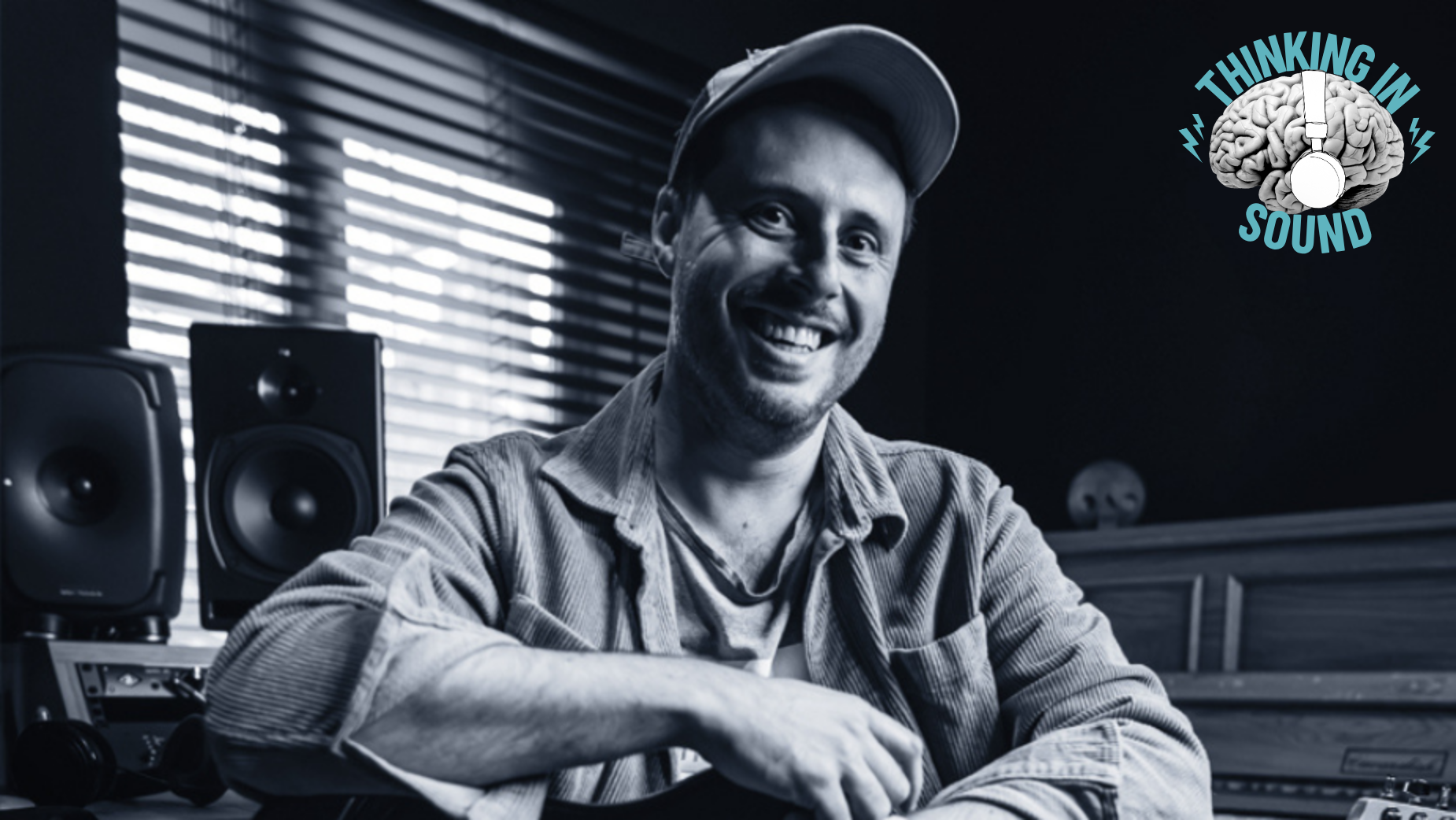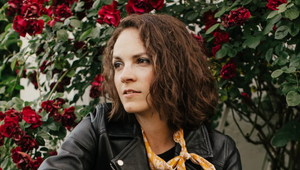
Why True Creativity Is Now More Important than Ever with Matthew Sanchez

Matthew Sanchez is a highly versatile, multi-instrumentalist, writer and producer who finds fresh angles and perspectives to his music productions. Fusing new sounds with traditional styles, he delivers bespoke and creative compositions.
Most recently he and Adam Dennis released their joint album ‘The Outer Edge’, an uplifting yet poignant collection, blending orchestral elements with big percussion, live strings, and brass.
LBB> When you’re working on a new brief or project, what’s your typical starting point? How do you break it down and how do you like to generate your ideas or response?
Matthew> It depends on the project but mostly I like to begin with listening to the references and homing in on the kind of moods and direction sonically. Pretty early on I find it really useful looking at visuals or footage that have a similar feel to the brief or project too – this can really help steer things on a good course from the off.
LBB> Music and sound are in some ways the most collaborative and interactive forms of creativity – what are your thoughts on this? Do you prefer to work solo or with a gang – and what are some of your most memorable professional collaborations?
Matthew> I enjoy both writing on my own and collaboratively but I do think writing with somebody else always brings a different angle which is great and really inspiring. I’ve been lucky to work with some fantastic co-writers and performers over the years.
LBB> What’s the most satisfying part of your job and why?
Matthew> I think probably that initial stage of writing where you’re not as worried about mixing but more in the zone of getting the initial idea started – production ideas along with sketching melody and sounds without trying to second guess things too much.
LBB> As the advertising industry changes, how do you think the role of music and sound is changing with it?
Matthew> The music industry is seeing some big changes within the process but I do think that the importance of true creativity, originality and inspiration is always the most important thing. And now more than ever probably.
LBB> Can you talk a little bit about the technological developments in sound design right now? i.e Dolby Atmos and 7.1 mixing or any new tech that is relevant to your work. Can you explain the tech to us laymen and describe what opportunities they bring?
Matthew> I guess I’m a little more ‘oldskool’ in approach but I like to try out new bits of software too. I had a look recently at an AI vocal generation bit of software that was quite interesting. You write the melody and the lyrics and then choose an AI singer that sings the vocal. I could see how it might work for throwing a quick initial sketch down and it was a pretty interesting experiment but I’d not use it properly, and definitely not instead of working with singers which I really enjoy.
LBB> How do you see the future of sound design? And is the metaverse a dream opportunity for immersive sound design?
Matthew> I’m not sure to be honest, there is always new software being created so there probably aren’t any limits to where it could go. It will be interesting to see how AI is implemented in sound design and music as a whole – hopefully a tool for assisting creatives rather than as a threat to creativity.
LBB> Who are your musical or audio heroes and why?
Matthew> I’m not sure I have heroes as such. I do find pop music interesting, through the years artists and bands that have reached such high levels of popularity, honing a sound and working within the limits of the technology they had at the time to create unique sounds. Bowie, The Beatles, Beach Boys, Brian Eno.
LBB> And when it comes to your particular field, are there any particular ideas or pioneers that you go back to frequently or who really influence your thinking about the work you do?
Matthew> I wouldn’t say I have one particular influence in my writing. But I guess I like sounds that were unique to a time in history such as drum machines, mellotrons, ‘80s synths!
LBB> When you’re working on something that isn’t directly sound design or music (lets say going through client briefs or answering emails) – are you the sort of person who needs music and noise in the background or is that completely distracting to you? What are your thoughts on ‘background’ sound and music as you work?
Matthew> I tend to not listen to music when catching up on the admin side of things. I find it a bit of a distraction and I tend to lose focus!
LBB> I guess the quality of the listening experience and the context that audiences listen to music/sound in has changed over the years. There’s the switch from analogue to digital and now we seem to be divided between bad-ass surround-sound immersive experiences and on-the-go, low-quality sound (often the audio is competing with a million other distractions) – how does that factor into how you approach your work?
Matthew> While there’s still of course the demand for high-fidelity audio, it is interesting to think on a consumer level as a Spotify user myself, of people also expecting music instantly and completely on demand.
In terms of my work writing for sync, TV, etc., I don’t use surround mixing but of course record using great sounding pre’s and I’ve also a few outboard toys for tinkering with compression, analogue eq, etc., which I find makes a big difference. In my experience of writing for sync, the music has to allow for dialogue or telling a story so this mostly leads the productions I work on.
LBB> On a typical day, what does your ‘listening diet’ look like?
Matthew> I tend to listen to spoken word podcasts if I’m not working or listening to mixes/references (some music related but others totally unrelated to music too). I do listen to the radio as well for a bit of variety or something totally different to the project sound I’m working on for a refresh!
LBB> Do you have a collection of music/sounds and what shape does it take (are you a vinyl nerd, do you have hard drives full of random bird sounds, are you a hyper-organised spotify-er…)?
Matthew> I’m a very disorganised Spotify-er and I do also love found sounds so I have a big collection of random sounds I’ve collated over the years. Although the quality is probably not great on some of them it’s a good source of inspiration to have.
LBB> Outside of the music and sound world, what sort of art or topics really excite you and do you ever relate that back to music (e.g. history buffs who love music that can help you travel through time, gamers who love interactive sound design… I mean it really could be anything!!)
Matthew> I love video games (when I get time) so the music in those is always really interesting. It’s crazy to think back to the music on old systems, like my Atari ST, compared to a game like GTA – where you can choose radio stations listening to commercial music!
LBB> Let’s talk travel! It’s often cited as one of the most creatively inspiring things you can do – I’d love to know what are the most exciting or inspiring experiences you’ve had when it comes to sound and music on your travels?
Matthew> I was lucky enough to go to Japan quite a few years back. The energy and noise of busy cities like Kyoto and Tokyo were then balanced with the total tranquility of shrines and temples in other places (sometimes in those cities too). I found Japan to be such an inspirational place to be.
LBB> As we age, our ears change physically and our tastes evolve too, and life changes mean we don’t get to engage in our passions in the same intensity as in our youth – how has your relationship with sound and music changed over the years?
Matthew> I think when I was younger music was more intertwined with my growing up or getting older at least! I think the connections I have to that music as I’ve gotten older has taken a deeper meaning as I now associate it with a period of my life and the memories I have of those times. Like listening to Steve Harley and Cockney Rebel with my dad, blasting Third Eye Blind in my dorm room, tracks by Benga, Fat Freddies Drop and Magnetic Man when I lived with my band mates in a scruffy house in Leeds.
I think the power of music is in connecting to the past as well as discovering new sounds today that are unique, emotive and moving.















